Your Idea Meets AI to Become a Real Service
Smilegate Future Lab held the “AI Service Weeklython” (hereafter “AI Weeklython”) over three days on July 21, 26, and 27. The AI Weeklython is a program that supports creators who want to transform their creative ideas into real services using AI. On July 27, the Newsroom team visited the event site at Smilegate Future Lab to vividly capture the passionate atmosphere, where participants ranged from AI major university students to experienced developers.
The AI Weeklython consisted of the “Onboarding Workshop” held on the 21st and the “Intensive Development Days” on the 26th and 27th. During the Onboarding Workshop, participants learned in detail about user-centered AI service design methods and guidelines for conducting user interviews.
After introducing themselves by sharing their backgrounds and the types of AI services they hoped to create, participants formed a total of 16 teams based on their skills and experience. Each team established various ground rules, such as “what makes a good team” and “rules for effective collaboration,” before diving into designing their AI services.
During the two-day Intensive Development Days starting on the 26th, participants focused on developing prototypes that could potentially be commercialised, receiving mentoring from AI experts along the way. In the “Sprint Review” sessions, where each project was evaluated, teams exchanged diverse opinions to further refine their prototypes. Kim Donghee of Team “Meal Maker” shared, “Until now, I’ve mostly viewed services from the perspective of a planner, but this experience gave me a chance to understand them much more deeply from the developers’ side.”
Developing Services Through Mutual Feedback
During the “Demo Market” session, the 16 teams showcased their various prototype services. Each prototype incorporated different AI technologies, including ChatGPT, face-swapping tools that could dynamically alter facial features, and Stable Diffusion for automatically generating images based on keywords.
As the Demo Market began, the exhibition booths quickly filled with participants. Each team presented different services, such as tools that visually summarized the key points of research papers or systems that automatically selected music appropriate for given content. Participants walked from booth to booth to try out each other’s prototypes and exchange feedback.
Kwon Ho-jung of Team “Jinsimi” shared, “It was the first time I received such specific feedback on something I developed. It reinforced the importance of collaboration.”
After the Demo Market concluded, the awards ceremony was held. Four teams—SWeer, Paper Wave, aeMuse, and Team Wave—received honours. Professor Park Hee-sun, who served as a judge, shared words of encouragement: “I was very impressed to see participants’ ideas evolve through user interviews and feedback. I hope this AI Weeklython becomes an opportunity for these projects to grow into real commercial services.”
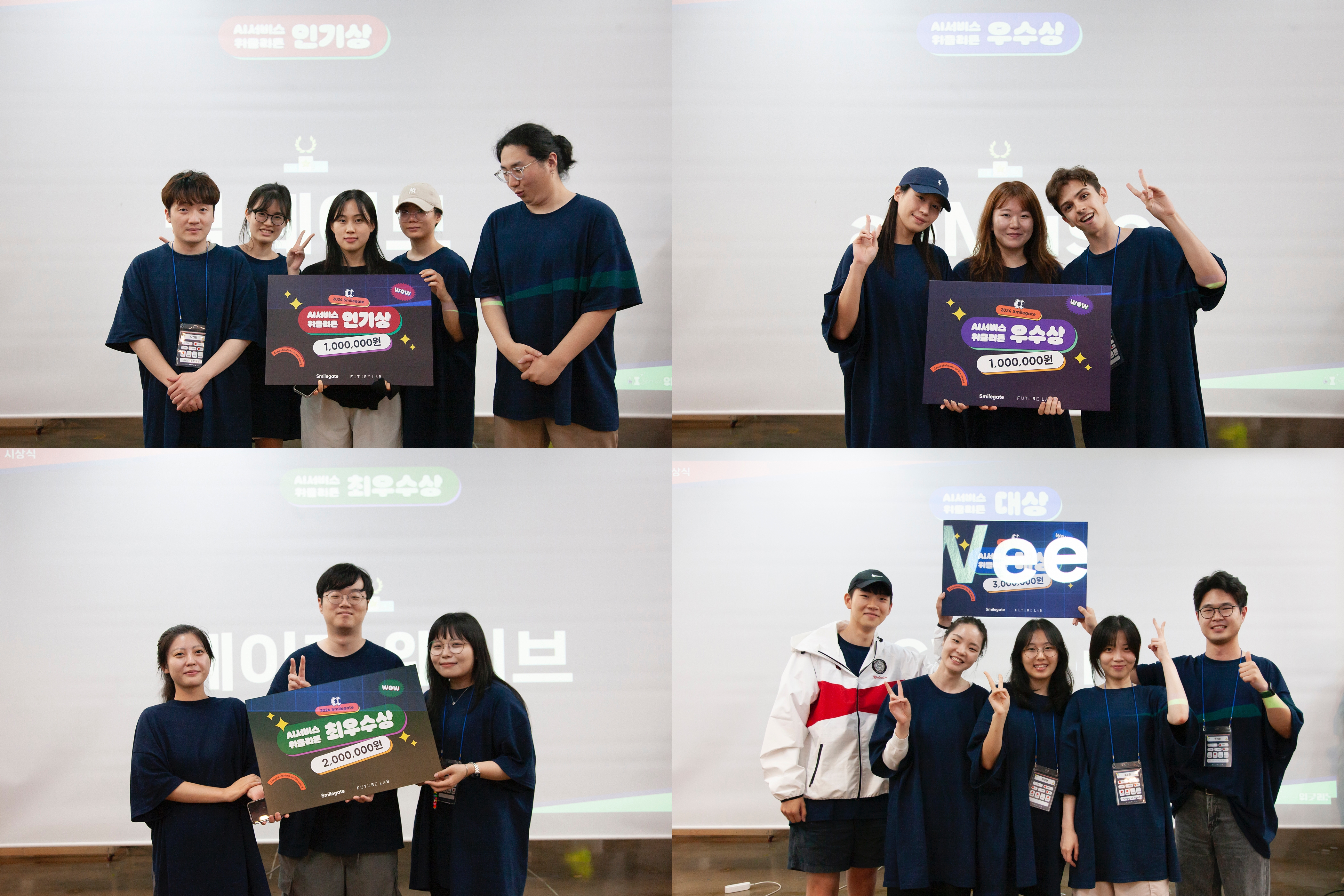
(Top row, from left) Popularity Award: Team Wave; Excellence Award: aeMuse
(Bottom row, from left) Grand Prize: SWeer; Top Excellence Award: Paper Wave
The SWeer team, which won the Grand Prize, received a 3 million KRW creative grant. Paper Wave, the Top Excellence Award winner, received 2 million KRW, while aeMuse, the Excellence Award recipient, was awarded 1 million KRW. Team Wave won the Popularity Award. After the ceremony, all participants were presented with certificates of completion.
Interview with Grand Prize Winner Team “SWeer”
Team Leader: Jo So-yeon | Team Members: Seo Hyo-jung, Lee Jun-hyung, Mo Ju-hyun, Park Se-hoon
Grand Prize Winner: SWeer
Congratulations on winning the Grand Prize. Could you please introduce your team?
Jo So-yeon We are Team SWeer, who created an AI service for generating game quests. Each of us joined the Weeklython individually, and we formed our team during the Onboarding Workshop. We developed “Story Weaver,” an AI service that “weaves stories.” We named our team by adding “er” to the front letters of “Story Weaver,” making “SWeer.”
What motivated you to participate in this Weeklython?
Lee Jun-hyung I’ve always been interested in AI-related events (laughs). What attracted me to the AI Weeklython was the chance to plan an AI service ourselves and share and exchange feedback with other teams. As a developer, I also wanted to learn more about the planning side, which I wasn’t very familiar with. Meeting so many planners through the Weeklython was really helpful.
What kind of AI service did you create during the Weeklython?
Seo Hyo-jung It’s an AI program that generates game quests. If you input simple text information about game elements like characters and items, the AI creates images of those characters and items, and then generates quests based on them. I think it could become a service that greatly improves the efficiency of game development. (laughs)
What was the most challenging aspect of creating your AI service?
Mo Ju-hyun Naturally, our biggest challenge was deciding which field our service would help. At first, we wanted to create an AI service that could support content production across various areas like video, webtoons, and games. But each type of content has different workflows and processes, so it was difficult to apply the same AI solution universally. So we decided to narrow our focus, and if we were going to pick a specific content area, we thought targeting a large market would be better for commercialization. During the Weeklython, we did market research and learned that the gaming industry generates much higher revenue compared to other content sectors. That led us to create the AI service for generating game quests.
How did your experience in this Weeklython help you?
Park Se-hoon Throughout the process of advancing our team project, I realised that strong collaboration with teammates can create real synergy. I think this was possible because everyone brought different experiences and knowledge to the table. I felt what “collective intelligence” means. (laughs) Above all, I grew a lot by communicating with my teammates and exchanging feedback, and that was tremendously valuable.
Lastly, is there anything you hope to see in future AI Weeklythons?
Lee Jun-hyung Personally, I really enjoyed the time spent exchanging feedback with other participants. Sharing ideas and opinions helped us develop our concepts further. If the AI Weeklython is held again, I think it would be great to have even more opportunities to give and receive feedback. Those interactions can lead to better alternatives that support service development.
However, when quoting content in articles, please credit it as “Smilegate Newsroom.”


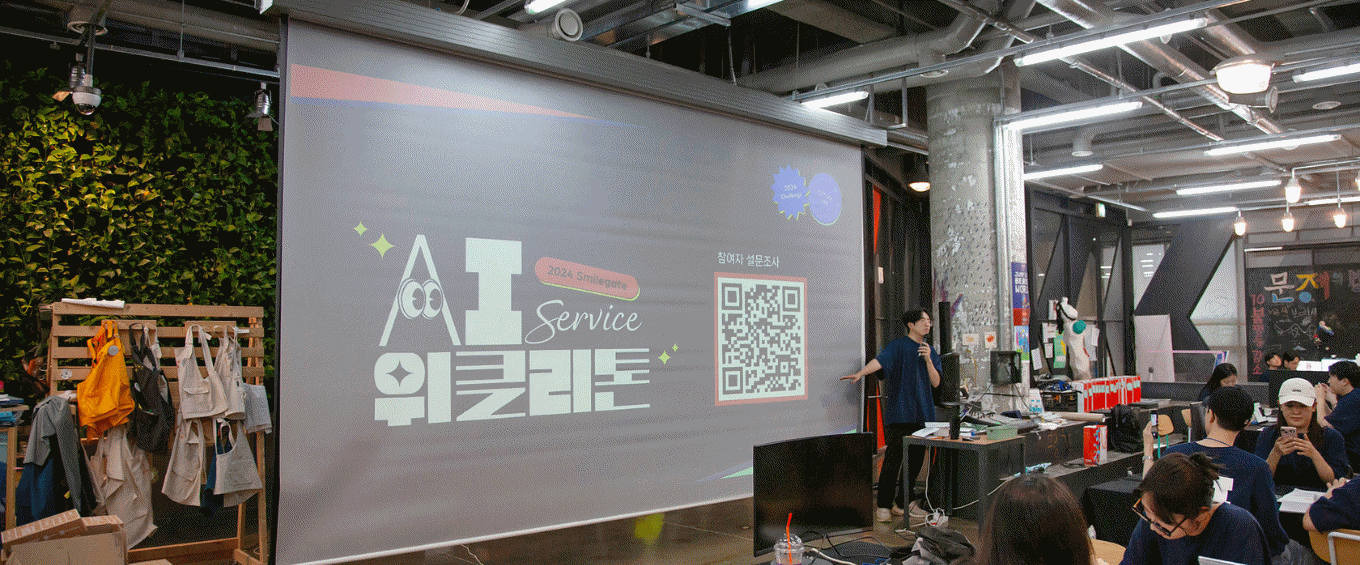
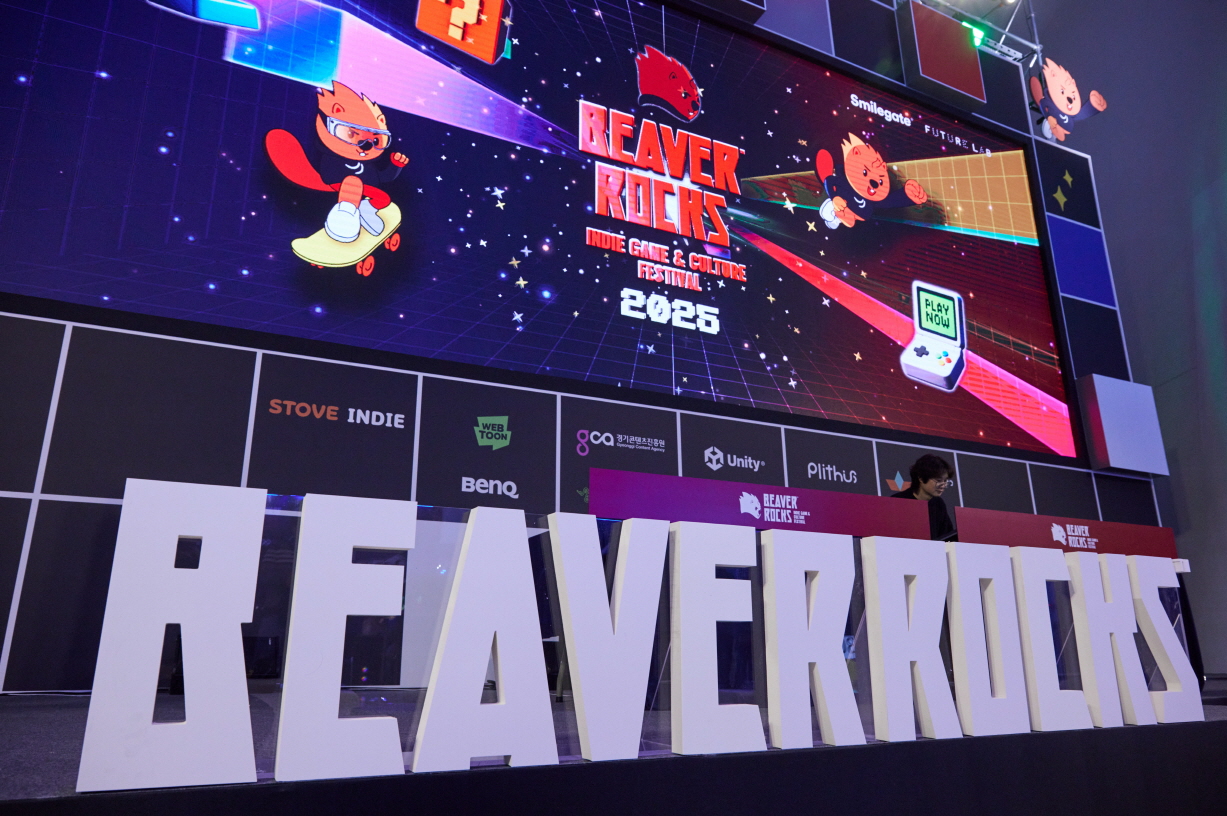
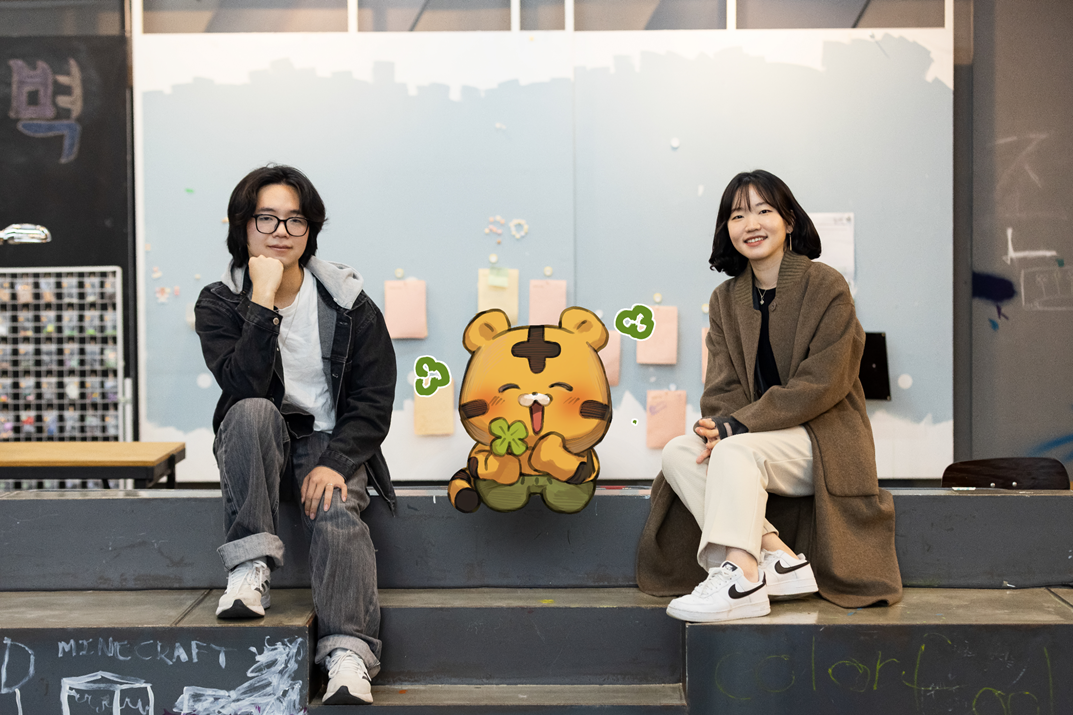
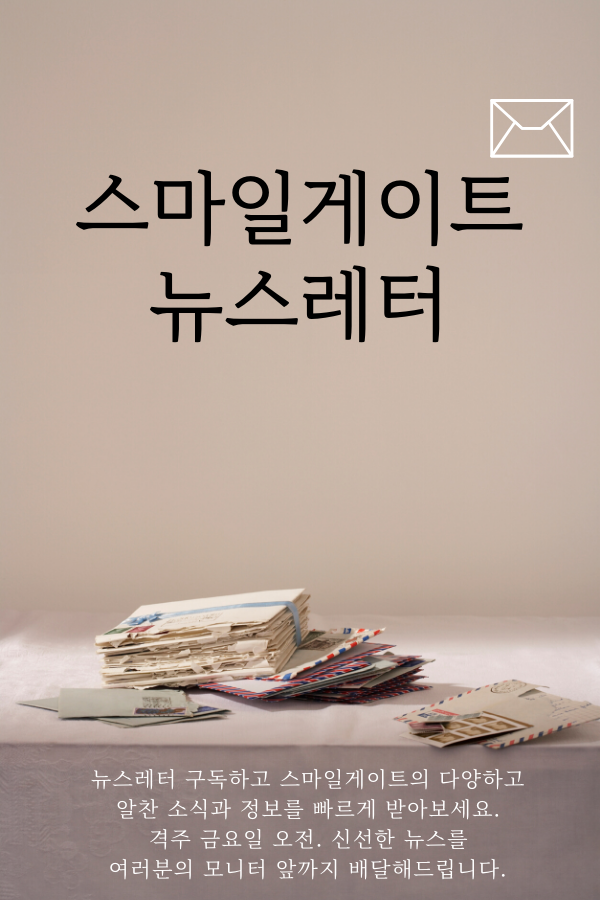
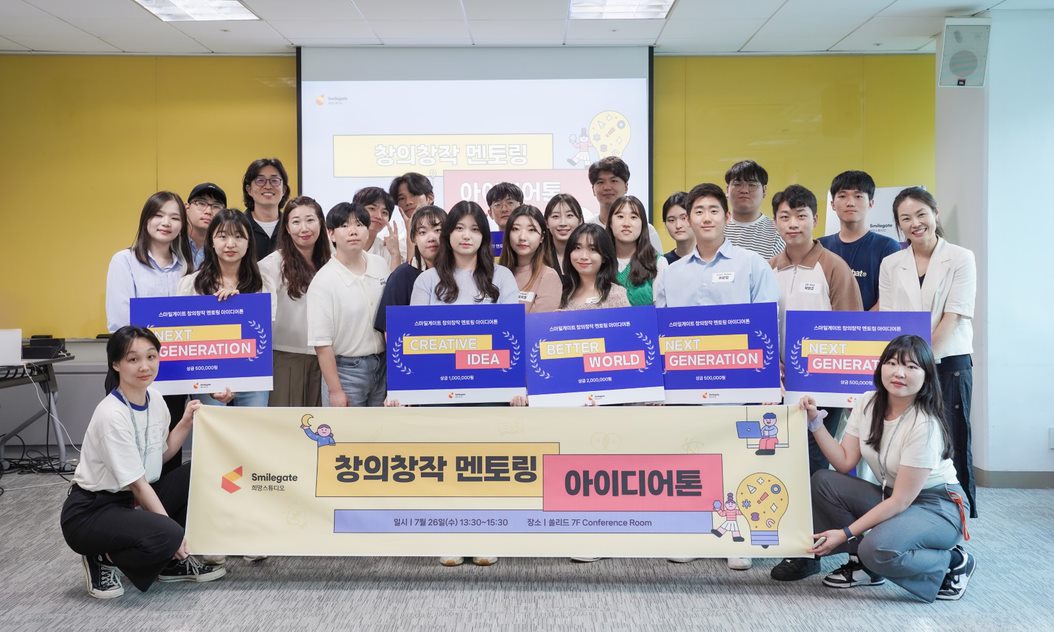
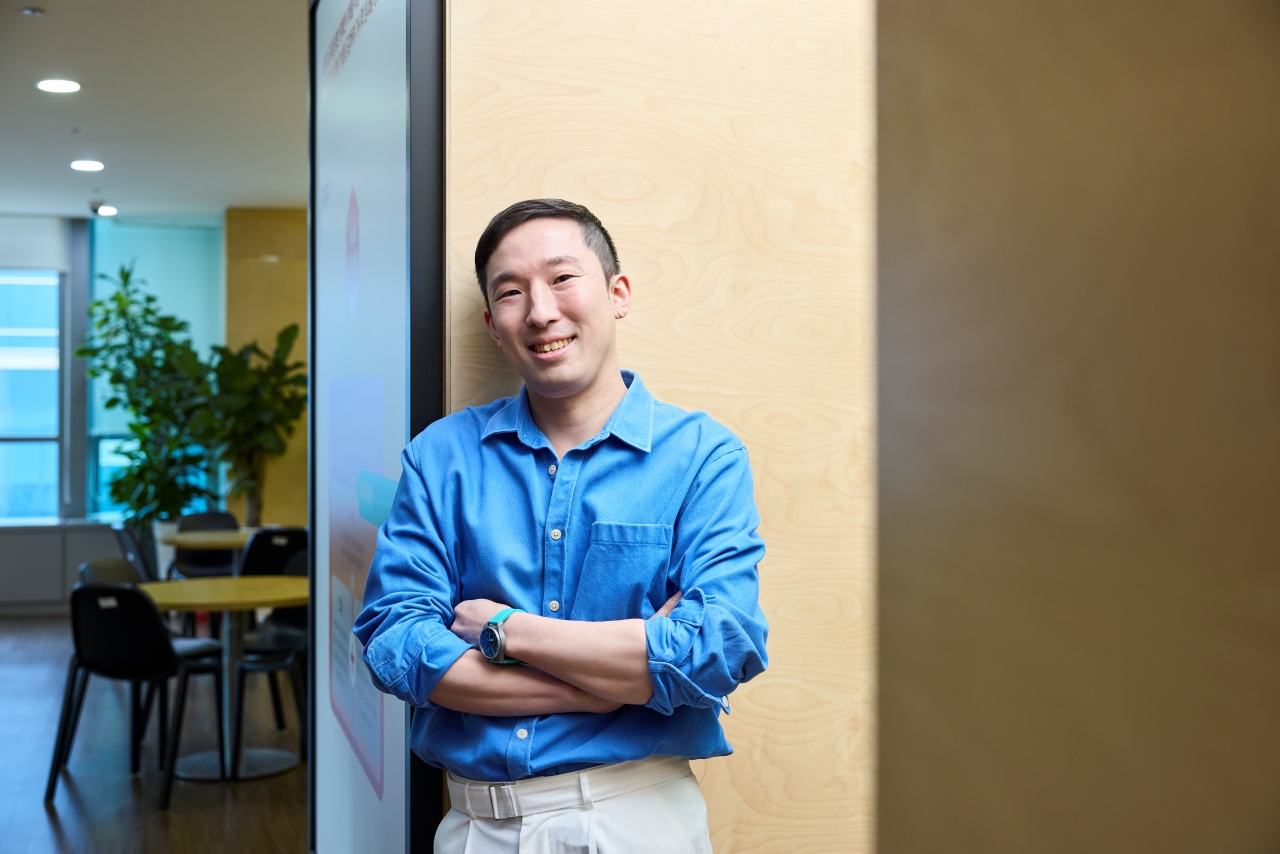
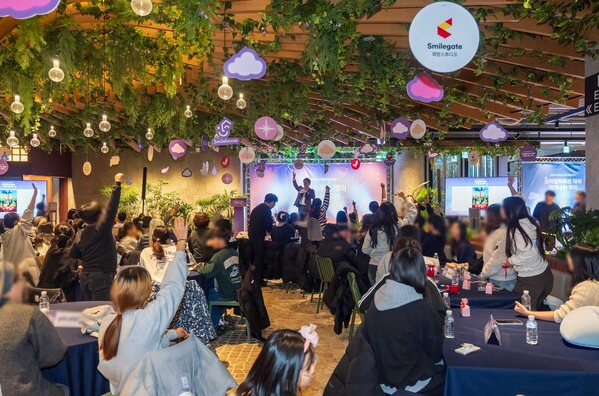

 TOP
TOP
